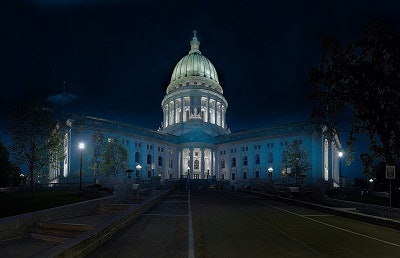The presidential election is too close to call, due largely to the unprecedented number of people who mailed in absentee ballots and conducted early voting out of heightened concern for their safety amid a global pandemic.
As of Wednesday morning, Democrat Joe Biden was leading with 224 electoral votes, with results in Michigan, North Carolina and Pennsylvania among other states still up in the air. Some experts and pundits have indicated they expect the process of counting votes to carry on for a number of days (or weeks) — in what has become one of the most highly controversial election cycles since George W. Bush was declared the winner over Al Gore in 2000 by a U.S. Supreme Court decision.

Higher education has, for better or worse, largely remained in the same place it was four years ago as the country eagerly awaited the results of the 2016 election. There has been no reauthorization of the Higher Education Act, now six years overdue. Free community college, a popular topic of conversation in the 2016 election and again in the primaries leading up to the 2020 election, lost steam. Pell grants have remained flat as well.
In the past four years, President Donald J. Trump has made himself the champion of “the poorly educated.” Yet, this industry has survived an administration that has questioned the validity of scientific research and shown a wanton disregard for facts. In fact, his administration mostly seemed disinterested in any actions that would directly impact higher education.
But the 2020 election season has brought higher education — and, in particular, historically Black colleges and universities (HBCUs) — back to the forefront of the conversation. Recognizing how critically important these institutions and their students and alumni are to the Democratic base, Joe Biden recently unveiled a $70 billion plan to support HBCUs. The plan focuses primarily on investing in infrastructure and research capacity for the institutions but also promises increases to the federal Pell grant program and broad student debt relief.
Lodriguez Murray, the senior vice president government and student affairs at the United Negro College Fund (UNCF), said the organization is hoping to see Pell grant awards double in the next administration.














